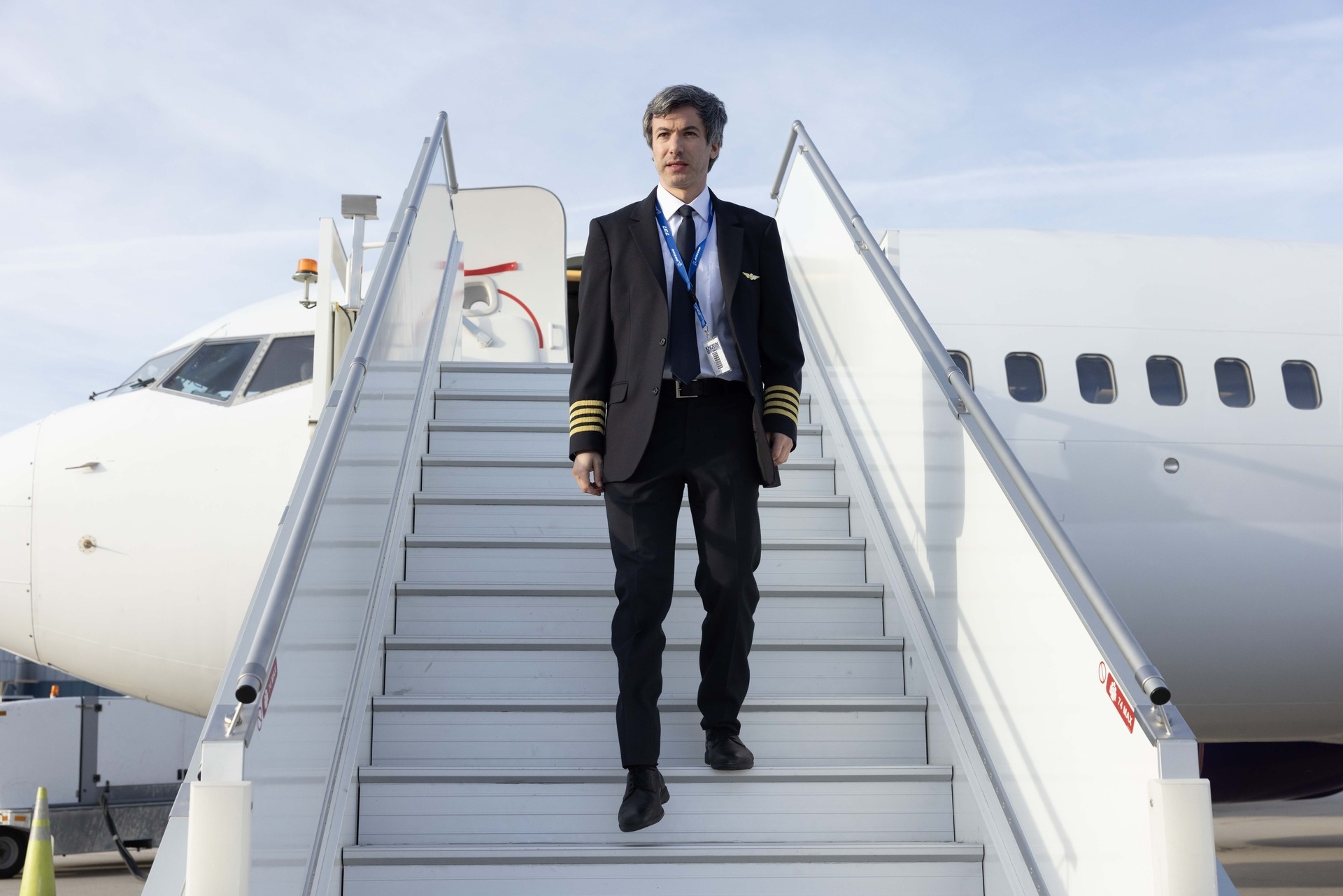The Rehearsal season two: New heights for Nathan Fielder
18 months ago, I wrote an article in anticipation of Nathan Fielder’s new limited series The Curse, which was releasing that month on Paramount+. In the article I described the ‘strange genius’ of Nathan Fielder and wondered if he was going to be able to match the weirdness of his previous projects.
The Curse may have maintained Fielder’s characteristic weirdness, but I felt it achieved this through sacrificing the more heartfelt moments of Fielder’s previous projects. In the end, the surreal nature of the show overpowered its attempts at emotion and made it overall disappointing. This balance, however, is something The Rehearsal’s second season achieves perfectly. It toes the line between its commitment to absurdist humour, while also always maintaining an empathetic human angle on its subjects.
The Rehearsal season two begins with a clear premise: Nathan is going to solve aviation safety. Specifically, he has discovered that a large contributing factor to commercial aviation crashes is the lack of communication between the pilot and first officer. Although he sticks (relatively) close to the premise, the ideas he explore explode in a wide variety of tangents. He still finds time to address Paramount+ pulling an episode of his previous show, Nathan for You, by humorously paralleling them to the Nazis. It is fair to say it would be surprising if they commissioned a second series of The Curse.
Episode six reaches new heights for the show
In another tangent, Fielder decides to test the pilot’s abilities to tell someone that they believe they are in the wrong. Inspired by his time as a junior producer on Canadian Idol, Fielder creates a fictional talent show titled ‘Wings of Voice’, where thousands of hopefuls are tasked to sing in front of an aviation pilot as a judge. It is possible with this that Fielder is attempting to address a common interpretation of his show, that he has consistently tried to satirise different forms of reality television.
Episode five explores not only the questionable morality of season one around the treatment of children (or as Variety called him in their hit piece, ‘the kid torturer’), but the theory that the show is an exploration of autism. Fielder highlights the idea of ‘masking’, and its similarities to the show’s concept of practicing all outcomes of a social situation. Whether it is for pilots, or for neurodivergent people in everyday life, Fielder shows how ‘masking’ and conforming is almost a necessity to fit in.
Episode six reaches new heights for the show, as Fielder reveals he has spent the past two years actually learning to fly planes, just so he can pilot a Boeing 737 with 150 passengers on board. The final sequence of the show takes on the feeling of a Christopher Nolan third act, almost on par with the Interstellar docking sequence. The ‘Miracle Over the Mojave’, as Fielder calls it, shows the lengths Fielder will go not just for the show, but sometimes just for a punchline.
Because in the end, what is the show about? Is it a discussion of communication in relationships, a theme Fielder has explored throughout all of his shows? Is it the satire of reality television, that people are never really their genuine selves when in front of a camera? Is it an exploration of autism, around how society prefers neurodivergent people to hide their diagnosis instead of treating it?
It really is, undoubtedly, like nothing you have ever seen
In both episodes one and five, Fielder is confronted with the same criticism from his subjects: are we the joke to you? Is this all just a way for you to make fun of us? Does Fielder really care about aviation safety as he claims? Is he any different from when he was a junior producer on Canadian Idol, tasked with destroying people’s dreams for the purpose of entertainment?
Reality television of course relies on creating characters out of real people. People create fabricated versions of themselves, either to win the show, or to try and make the viewers like them. How much of Fielder is a genuine depiction of himself is something we will probably never understand fully. And yet how much of the people we see on television or online is a true depiction?
I finished my last article on Fielder with the statement: “The Curse is going to be unlike anything you have ever seen before.” And although I may have described some of the details of The Rehearsal, it really is, undoubtedly, like nothing you have ever seen, or will ever see again.
The Rehearsal is now available to stream on Paramount+.

Comments